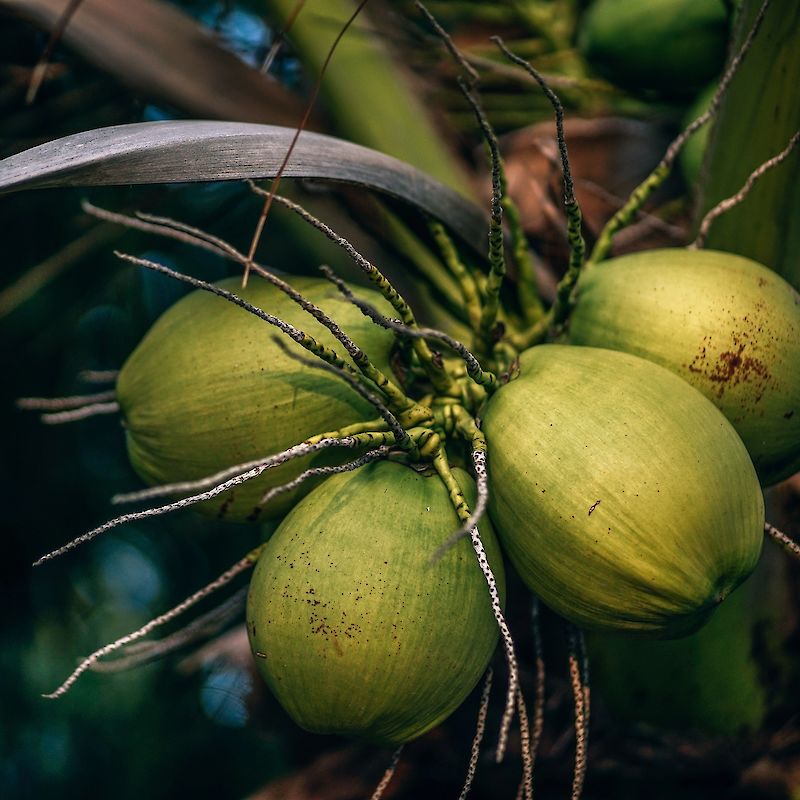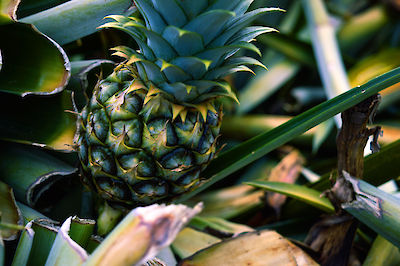

Agriculture and forestry
Fetteh Kakraba
Extraction of banana and plantain fibres
The population of Ghana and Africa is growing and wants to be fed and clothed. The demand for food and textiles is therefore increasing substantially. At the same time, climate change is affecting the availability of water resources and fertile soils.
Practical solutions are therefore needed to meet this challenge without placing an additional burden on the environment.
Banana, plantain, coconut and pineapple are staple foods in Ghana. After harvesting, the plantain and banana trees, pineapple leaves and coconut shells remain as waste. They are burned or left lying on the farms/fields. However, this waste can be used as raw materials for natural fibre production. RurATechPromotion gGmbH sees this as the solution to the problem. Plantain and banana fibres are used in the manufacture of clothing materials, paper, nonwoven mats and in the automotive industry.


The aim of this project is:
- Tackling the unemployment problem and the lack of prospects in the rural areas of Ghana, where bananas, plantains, coconut and pineapple are grown.
- Empowering people to convert the waste from these plants into useful products.
- To ensure that Farmers are able to earn their income not only from the fruits, but also from the so-called "waste" of the plants.
- Relieving the environment.
- To ensure the transfer of know-how from Germany to Ghana.
Project Approach:
- Cultivation or purchase of plantain and banana trees, pineapple leaves and coconut shells from farmers after harvesting the fruit.
- Mechanical extraction of natural fibres from the above-mentioned raw materials.
- Manufacture of products from:
a) Plantain and banana fibres: textile, bags, paper.
b) Coconut fibres: doormats, brushes, mattresses
c) Pineapple leaf fibres: textile, bags, nonwoven fibre, ropes. - The money generated from the project plantain farm and the sale of natural fiber products will be reinvested in the project.
Benefits of the project:
- Introduction of modern technologies into agriculture in Ghana.
- Employment opportunities:
a) Cultivation of natural plants for food.
b) Fibre extraction and production of garn
c) Weaving fiber strands into useful products.
d) Capital generation from the sale of these products.
e) Environmental protection, because the previous method of incineration pollutes the environment with carbon oxides (CO + CO2). In addition, these natural products obtained are biodegradable.
f) The project will be self-sustaining, as the products produced are common household products that can easily be sold out and the revenues are re-invested.